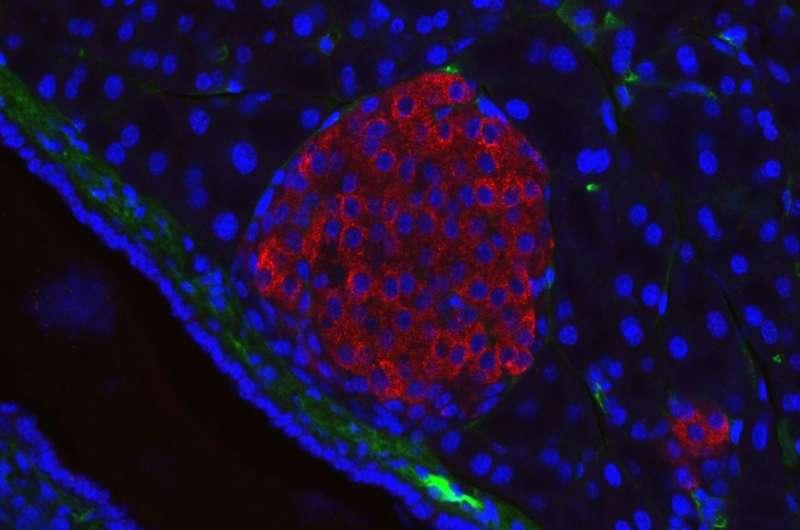Researchers develop pancreatic beta-cell restoring therapy for treating type 1 diabetes

Researchers have successfully treated type 1 diabetes in mice using pancreatic beta-cell, target-specific, chimeric antigen-receptor (CAR) regulatory T cells (Tregs), and demonstrated the feasibility of their approach to treat the human condition according to data being presented Monday, June 13 at ENDO 2022, the Endocrine Society's annual meeting in Atlanta, Ga.
The study was led by Juan Carlos Jaume, M.D., Professor and Chief of the Division of Endocrinology, Diabetes, and Metabolism, in the Department of Medicine, and Director of the Center for Diabetes and Endocrine Research (CeDER), at the University of Toledo in Toledo, Ohio.
Historically, adoptive cell transfer therapies with CAR cytotoxic T cells have proven effective for the treatment of hematologic malignancies. Jaume and his team attempted to replicate an equally effective experimental treatment for type 1 diabetes using instead non-cytotoxic, anti-inflammatory Tregs.
"The purpose of this study was to determine if pancreatic beta-cell, target-specific, human CAR Tregs could also identify human pancreatic beta cells (target) and home to human pancreatic islets (where beta cells live) in culture as they do in mice undergoing CAR Treg treatment for T1D," Jaume said.
The researchers drew blood one to two weeks prior to pancreas surgery, followed by a collection of a small piece of the pancreas (5 cc wedge) after the pancreas was removed for a clinically indicated reason (cancer or pancreatitis).
First, they isolated Tregs from the blood samples and expanded them in vitro. Those cells were genetically modified to express a beta-cell, target-specific CAR combined with a green fluorescence protein (GFP) marker.
Second, the researchers processed the pancreas tissue for islet separation.
Then, they co-cultured the human pancreatic islets combined with the beta-cell, target-specific CAR Tregs.
Within 24 hours, confocal microscopy demonstrated the successful migration of the GFP positive, CAR Tregs onto the pancreatic islets. What's more, the CAR Tregs significantly proliferated while in physical contact with the pancreatic islets in the subsequent 72 hours.
"Ours is the first successful, pancreatic beta-cell, target-specific CAR-Treg treatment of T1D in a humanized mouse model that closely resembles the human disease. Based on our mice and human in-vitro data, we believe treatment with pancreatic beta-cell, target-specific, CAR-Tregs will allow for recovery and reconstitution of beta cells in human T1D patients as well," Jaume said.


















